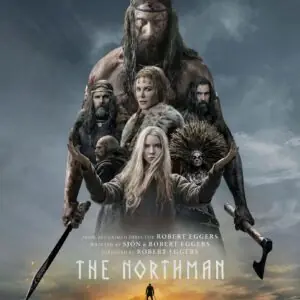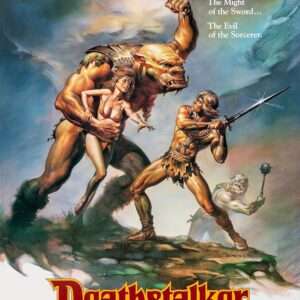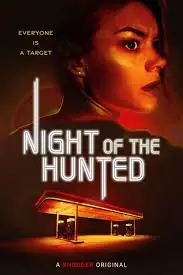In the stillness of the Appalachian wilderness, where every hill has secrets and every shadow can swallow a man whole, Devil’s Peak unfolds like a slow-burning tragedy. Released in 2023 and based on David Joy’s novel Where All Light Tends to Go, this southern noir crime drama is as moody and menacing as the title suggests.
Directed by Ben Young and featuring powerful performances from Billy Bob Thornton, Robin Wright, and Hopper Penn, Devil’s Peak tells a harrowing story of family legacy, criminal fate, and the impossible search for redemption in a world where hope has long since dried up.

A Gritty Appalachian Tale
Set in a small, drug-riddled mountain town in North Carolina, Devil’s Peak centers around Jacob McNeely (played by Hopper Penn), the teenage son of the region’s most feared meth kingpin, Charlie McNeely (Billy Bob Thornton). Jacob wants out. He’s seen what this life has done to his mother, a strung-out ghost of a woman (Robin Wright), and he knows that if he doesn’t escape, he’ll either end up dead or become the monster his father already is.
But getting out of Devil’s Peak isn’t simple. There are expectations. Blood ties. And a mountain of danger standing between Jacob and freedom.
What follows is a tension-laden journey as Jacob tries to break from the chains of family and crime, only to find that when your last name is McNeely, the world already has your story written in blood.
Performances that Pierce
One of the film’s strongest aspects is its casting, particularly the ferocious performance by Billy Bob Thornton as Charlie McNeely. Thornton channels a frightening blend of charm, menace, and southern grit. He’s not your average gun-slinging villain—he’s calm, cunning, and chillingly paternal. The kind of man who’ll pat you on the back right before stabbing you in the gut if it means keeping control.
Thornton’s portrayal of Charlie isn’t cartoonish or exaggerated; it’s eerily real, a composite of many broken men who’ve thrived off fear in places forgotten by justice.
Hopper Penn, son of Sean Penn and Robin Wright, plays Jacob with quiet intensity. He doesn’t shout or flail—he simmers. His portrayal of a young man crushed by generational sin and small-town despair is raw, understated, and heartbreakingly believable. There’s a deep sadness in his eyes, even when he’s doing nothing. You don’t root for Jacob because he’s heroic—you root for him because he’s the only one in the story who still has a sliver of light left.
Robin Wright gives a haunting performance as Jacob’s addict mother. Broken, fading, and resigned to her world, she represents the collateral damage of Charlie’s empire. Her scenes with Jacob are few, but they hit hard, full of unspoken regret and love that never had a chance to grow.

Southern Gothic Atmosphere
Visually, Devil’s Peak is steeped in Appalachian gloom. Cinematographer Michael McDermott captures the loneliness of the mountains, the decay of old towns, and the quiet menace that lingers in the mist. This is not the South of wide porches and warm tea—this is the forgotten South, bruised by poverty, addiction, and crime.
Every scene feels soaked in dirt and danger. Trailers perched on cliffs, creaky gas stations, neon-lit diners that never close—the setting becomes a character in itself, oppressive and beautiful in its decay.
The film doesn’t glamorize violence or crime. When blood is spilled, it’s ugly. Brutal. Real. That unflinching honesty makes every act of violence more impactful, not just a spectacle but a consequence.
A Slow, Burning Descent
Devil’s Peak doesn’t rush. The film is deliberately paced, allowing moments to stretch and conversations to linger. This might turn off viewers looking for fast-paced crime thrills, but it’s entirely appropriate for the story being told.
It’s a film about inevitability. About how hard it is to change when your whole world is designed to keep you the same. Jacob is like a trapped animal—pacing the cage, dreaming of escape, yet always haunted by the fact that escape might not be possible.
The slow burn of the narrative mirrors Jacob’s internal war: every choice he makes pushes him further from his father—but closer to the consequences.
Themes: Legacy, Addiction, and the Illusion of Escape
At its core, Devil’s Peak is about inherited violence and the toxic weight of family loyalty. Charlie McNeely doesn’t rule with love—he rules with fear masked as duty. For Jacob, rejecting that legacy means rejecting not only his father but also the only life he’s ever known.
The film also tackles the opioid crisis and meth addiction, without turning characters into caricatures. There’s a painful authenticity to how addiction is shown—slow, consuming, and tragically normalized.
Perhaps most powerfully, Devil’s Peak confronts the myth of getting out. The belief that if you just make the right choice, you can leave your past behind. But in this world, the past has claws—and even your best intentions might not be enough to free you.
Final Verdict: A Bleak but Beautiful Crime Drama
Devil’s Peak isn’t a feel-good movie. It doesn’t wrap things up in neat resolutions or heroic clichés. It’s harsh, often heartbreaking, and unrelentingly bleak—but it’s also deeply human. It understands pain, love, and the desperation of wanting more when you’ve been told you’ll never have it.
With its heavy performances, stark visual style, and haunting atmosphere, the film joins the ranks of modern southern gothic crime dramas like Winter’s Bone, Out of the Furnace, and Hell or High Water. It may not be perfect—some pacing lulls and dialogue can be a bit too sparse—but it resonates long after the credits roll.
This is a film about a boy trying not to become his father. About a town rotting from the inside. About whether we can ever really escape who we are—or if we’re just climbing our own Devil’s Peak with no path down.





